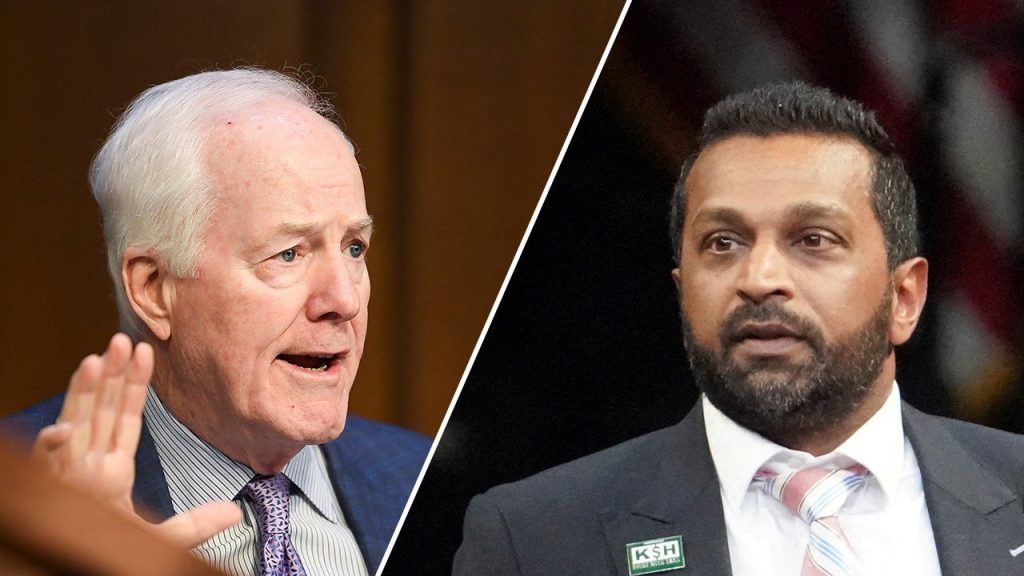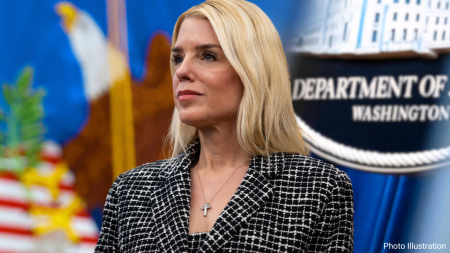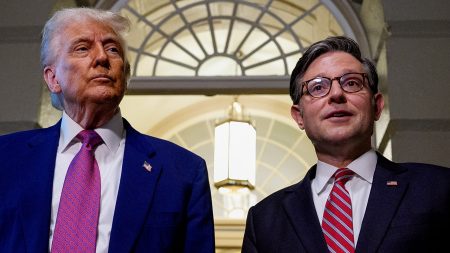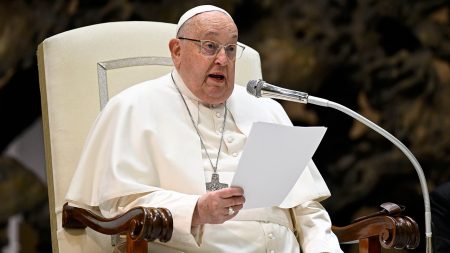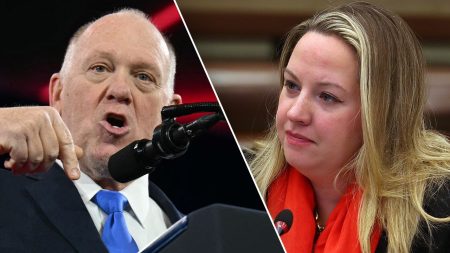Kash Patel, President-elect Trump’s nominee for FBI Director, met with Senator John Cornyn (R-TX) on Monday, seeking to garner support for his impending confirmation. Cornyn expressed a positive inclination towards Patel’s nomination, contingent on the absence of unforeseen circumstances. The senator emphasized the shared objective of restoring the FBI’s reputation as a nonpartisan law enforcement agency, a reputation he believes has been tarnished in recent years. Cornyn pointed to former Director James Comey’s handling of the Hillary Clinton email investigation and subsequent actions after his dismissal as contributing factors to the erosion of public trust in the bureau. He highlighted Comey’s public announcement of prosecutorial decisions, a prerogative typically reserved for the Attorney General, as a fundamental misstep. Cornyn also criticized Comey’s post-firing actions, which he characterized as a “retribution tour” aimed at securing a special counsel investigation against President Trump.
The senator’s concerns extend beyond Comey’s tenure, encompassing what he perceives as a broader pattern of partisan bias within the DOJ and FBI. He expressed his desire to see these agencies return to a state of nonpartisan functionality, a goal he believes Patel shares. Cornyn underscored the undue burden placed upon President Trump by what he characterized as a politically motivated investigation, driven by partisan actors within these institutions. He stressed the importance of ensuring that the nation’s chief law enforcement agency operates free from political influence, emphasizing the critical role of the FBI Director in upholding this principle. This meeting represents a crucial step in Patel’s confirmation process, as he seeks to build bipartisan consensus for his leadership of the FBI.
Patel’s visit to Capitol Hill is part of a broader effort by Trump’s nominees to secure Senate confirmation. By engaging with lawmakers directly, Patel aims to demonstrate his commitment to the principles of nonpartisanship and impartiality, key qualities for the leadership of the FBI. The emphasis on restoring the bureau’s reputation suggests a recognition of the challenges facing the agency, particularly in the wake of highly publicized controversies and accusations of political bias. Cornyn’s positive response indicates potential support within the Republican ranks, but Patel’s confirmation will ultimately depend on his ability to persuade a broader spectrum of senators, including Democrats, of his suitability for the role. The focus on rebuilding trust and ensuring nonpartisanship will likely be central themes in the upcoming confirmation hearings.
The context of these meetings underscores the significance of the FBI Director position, particularly given the recent history of political scrutiny surrounding the bureau. The FBI’s role in investigating potential election interference and other sensitive matters has placed it squarely in the political spotlight, making the director’s impartiality and commitment to the rule of law paramount. Patel’s success in securing confirmation will hinge on his ability to convince senators that he can navigate these complex political landscapes while maintaining the FBI’s integrity and independence. The emphasis on restoring the bureau’s reputation as a nonpartisan institution suggests a broader acknowledgment of the need to depoliticize law enforcement and intelligence agencies.
The discussions between Patel and senators highlight the importance of maintaining a clear separation between law enforcement and political agendas. The FBI’s credibility and effectiveness rely heavily on public trust, which can be eroded by perceptions of partisan bias. Patel’s efforts to address these concerns directly with senators reflect an understanding of the need to rebuild that trust and reaffirm the bureau’s commitment to nonpartisanship. The Senate’s ultimate decision on his confirmation will have significant implications for the future direction of the FBI and its ability to fulfill its mission effectively.
The emphasis on Comey’s handling of the Clinton email investigation and the subsequent appointment of a special counsel to investigate Trump underscores the deeply politicized environment surrounding the FBI in recent years. These events have fueled accusations of bias from both sides of the political spectrum, creating a challenging environment for any incoming director. Patel’s task is not only to demonstrate his own commitment to nonpartisanship but also to implement reforms and policies that will insulate the FBI from future political interference. This requires a careful balancing act, ensuring that the bureau remains accountable to the public while also protecting its investigative independence. The success of Patel’s tenure, should he be confirmed, will depend largely on his ability to navigate this delicate balance and restore public confidence in the FBI’s impartiality.




